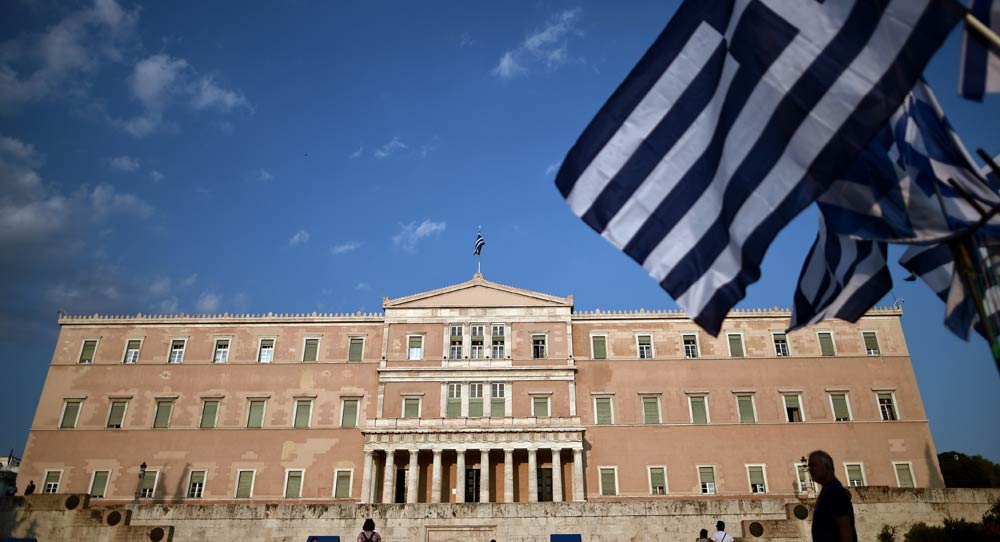After eight painful years of an economic depression associated with huge losses of output and employment, Greece is gradually recovering.
There’s a boost in price competitiveness caused by the fall in production costs. And the current government—an alliance of populist left and right-wing nationalism—is trying to turn the page by dropping old slogans and adopting a more forward-looking discourse.
That’s the good news. The downside is that reforms are inadequate and inefficiently implemented. The functioning of the administrative and judicial systems is deteriorating. Anti-business policies remain in place. Indeed, Greece seems to be missing new opportunities that are emerging, mainly due to a rapidly changing geopolitical environment.
These shifts include Donald Trump’s election as U.S. president, Russia’s continuing challenge of the postwar territorial status quo, Turkey’s detachment from the European—and Western—system, and Brexit. Add to that the structural weakness of the monetary union and the migration crisis. They all amount to a complex of problems that calls for urgent and profound reforms in the EU.
The debate in Europe is moving away from the economic-fiscal field that focused on austerity and policies to exit the debt crisis to larger, longer-term issues such as economic growth, security, defense of frontiers, and policies promoting social cohesion and fairness.
This is where Greece could contribute in a forceful and creative way to the new policy agenda.
Positioned at the southeastern end of the EU, close to the sources of migration flows and sharing frontiers with a difficult Turkey, Greece is becoming a pillar of stability in the area. Greece could thus expect to receive sufficient international support for returning to sustained growth and playing a larger role, both regionally and within the EU. Recent efforts by the United States to extend military cooperation and reinforce economic ties with Athens are indicative of rising interest in Greece’s potential for acting as a stabilizing force.
Opportunity should be matched by capability.
Establishing a steady pace of structural reforms is the key to this necessary effort. The economic and business environment must be radically improved so as to become attractive for investment capital and new technologies, coming mostly from abroad. Lower taxes are necessary and could help, but they are not enough. Major questions related to the efficiency, independence, and integrity of public sector institutions should be urgently and squarely addressed. Constitutional reform has been delayed but change cannot be postponed any longer.
Practical, fast-track solutions are required, particularly for modernizing infrastructure and equipment; introducing improved management methods; evaluating, upgrading, and re-allocating human resources; and protecting institutional systems from political interference. For the reforms to be credibly implemented, they must be designed and owned by the Greek government, which should assume full responsibility for its fate—contrary to what happened during the crisis, when the lenders imposed the bailout programs and the government appeared to be forced to act.
In the international field, Greece should confirm its commitment to European integration by joining the new effort that French President Emmanuel Macron wants to initiate with the support of Germany. The actual scope of the reform proposals that will be put on the negotiating table, particularly with regard to the completion of the eurozone’s unfinished construction, is not known yet. Germany’s abhorrence of a “transfer union” remains an obstacle. Failure to integrate will expose the monetary union to the danger of destabilization from future financial crises that could lead to its disintegration.
But a tightly integrated eurozone may alienate non-members, thus creating divisions and dissent that could undermine the functioning of the union. A restructured eurozone should avoid exclusions and let in all willing participants. Weaker eurozone members should be supported so as to join the effort.
Greece needs such support today. Substantial debt relief, as promised by the lenders, is essential for restoring the country’s creditworthiness. Germany’s prevarication in facing the issue is worrying, particularly if the current political uncertainty leads to a government lacking stability and direction. At the same time, longer-term budget surplus targets should be relaxed so as to provide sufficient room for demand to keep pace with growth projections.
For Greece, this moment in time offers a chance. It is up to the country’s politicians to grasp it. But partners have a big role to play, too, which could be a win-win for both.
Yannos Papantoniou is President of the Center for Progressive Policy Research, an independent think-tank.






